Market Update - December 2024 - West Pasco FL
Looking to stay informed about West Pasco's real estate market? Get the latest data on property prices, market inventory, and neighborhood trends. From Holiday and New Port Richey to Port Richey, Hudson, and Spring Hill, I’ll keep you up to date with valuable insights for smarter decisions.
Video Summary
Market Temperature
The West Pasco real estate market in December 2024 saw a mix of growth and challenges compared to December 2023. Active listings rose to 1,982 from 1,604, an increase of 378 properties or 23.6%, reflecting a continued strong supply. The average sale price experienced a slight increase, reaching $285,441 from $284,440, up by $1,001 or 0.4%, suggesting price stability despite shifting market conditions.
Number of Active Listings
Active listings in real estate refer to the number of homes currently available for sale in a specific market. This statistic provides insight into the supply side of the market, indicating whether there is a high or low inventory of homes. A higher number of active listings generally suggests a buyer's market, while fewer listings indicate a seller's market, affecting pricing and competition.
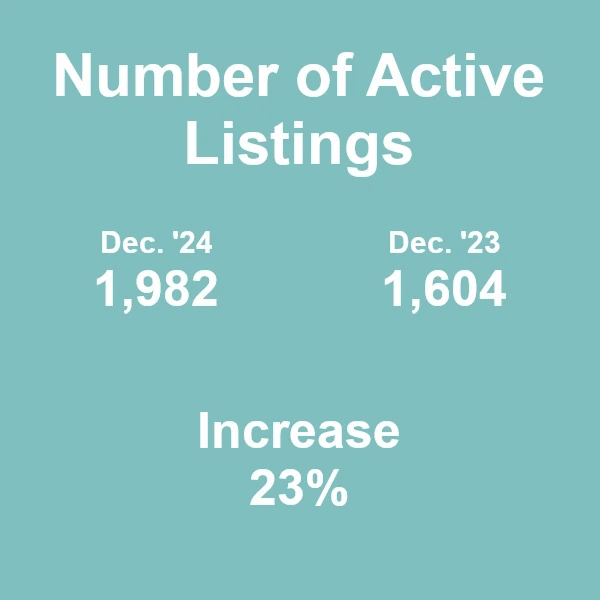
Graph With 12 Month Values
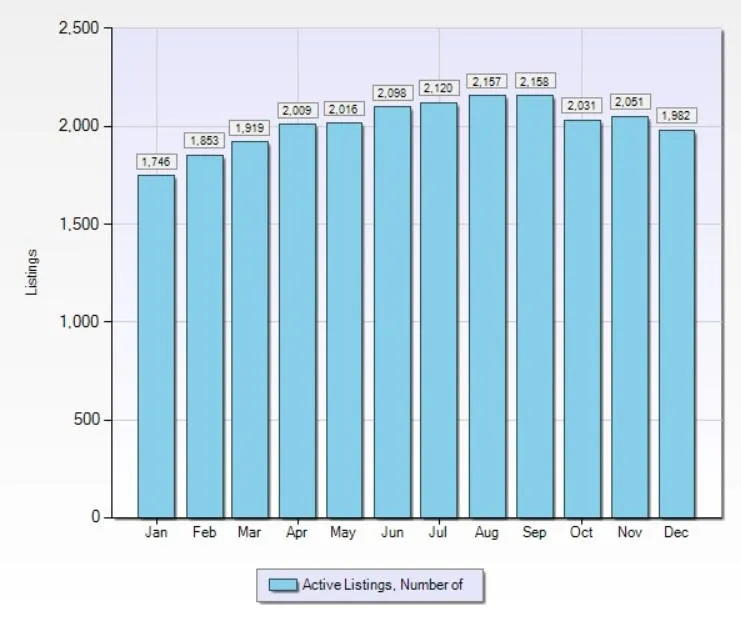
Average Sale Price
The average sale price in real estate represents the mean price at which properties have sold in a specific area during a given time period. This statistic helps gauge market trends, indicating whether property values are rising or falling. A higher average sale price often suggests a strong demand or higher-value properties being sold, while a lower average sale price may indicate a softer market or more affordable homes being purchased.
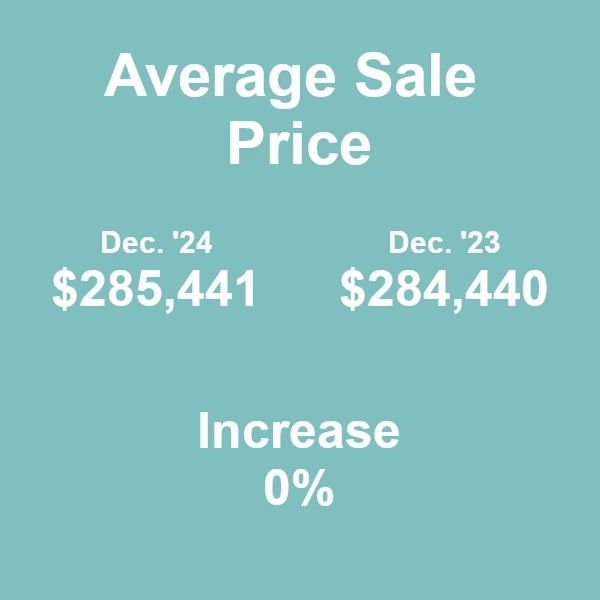
Graph With 12 Month Values
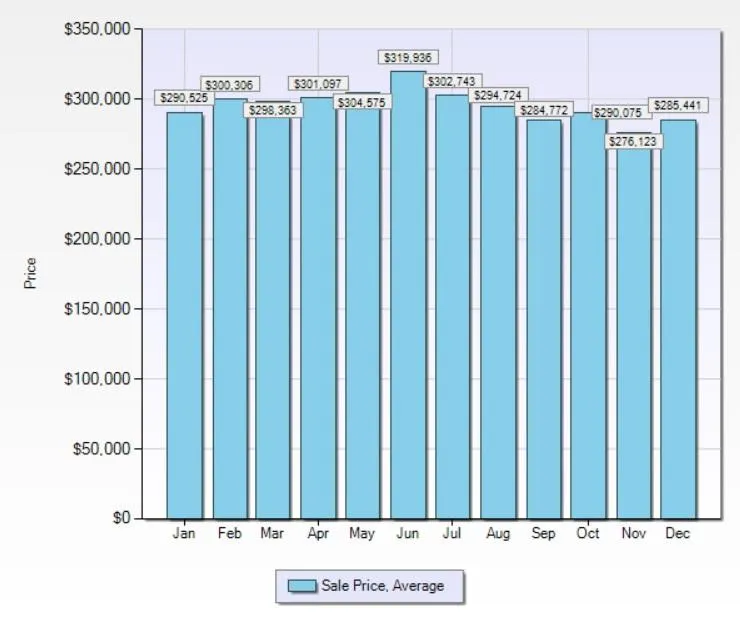
Sales activity saw a significant uptick, with 455 properties sold compared to 349 the previous year, an increase of 106 sales or 30.4%. Inventory levels decreased to 4 months from 5 months, a 20% reduction, indicating a more efficient market as homes are absorbed faster.
Number of Sales
The number of sales in real estate statistics reflects the total count of properties that have been successfully sold within a specific time period, such as a month or quarter. This metric provides insight into the demand side of the market, indicating how active buyers are and the overall market's health. A higher number of sales typically signals strong demand and a healthy market, while a lower number might suggest weakening demand or seasonal fluctuations.
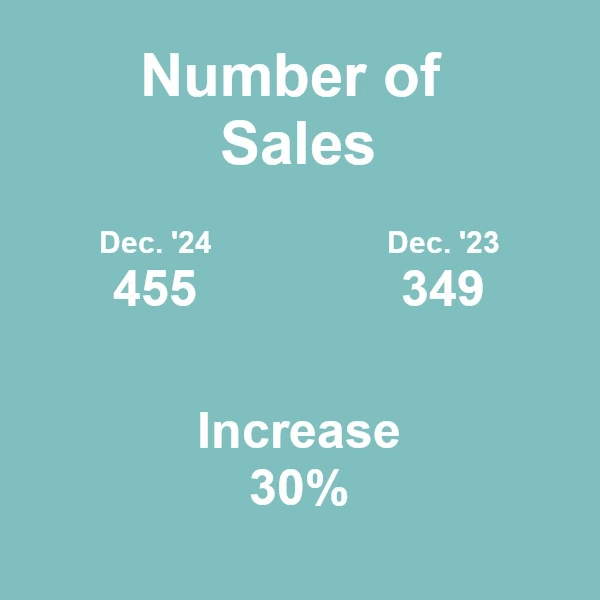
Graph With 12 Month Values
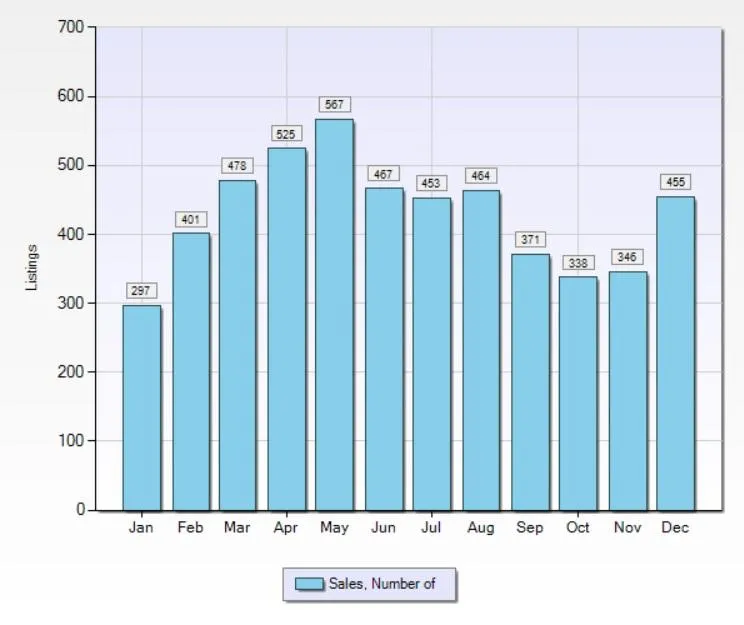
Months of Inventory
Months of inventory in real estate measures how long it would take to sell all current active listings at the current sales pace, assuming no new listings come on the market. It indicates the balance between supply and demand; lower months of inventory suggest a seller's market, while higher months of inventory point to a buyer's market. This metric helps predict price trends and market competitiveness.
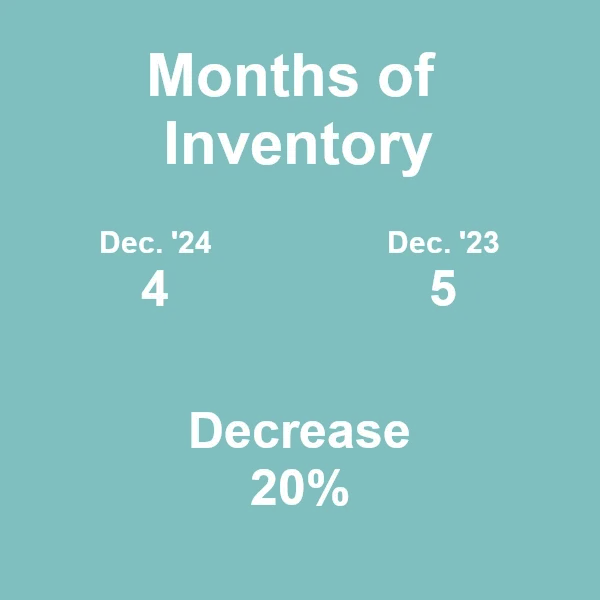
Graph With 12 Month Values
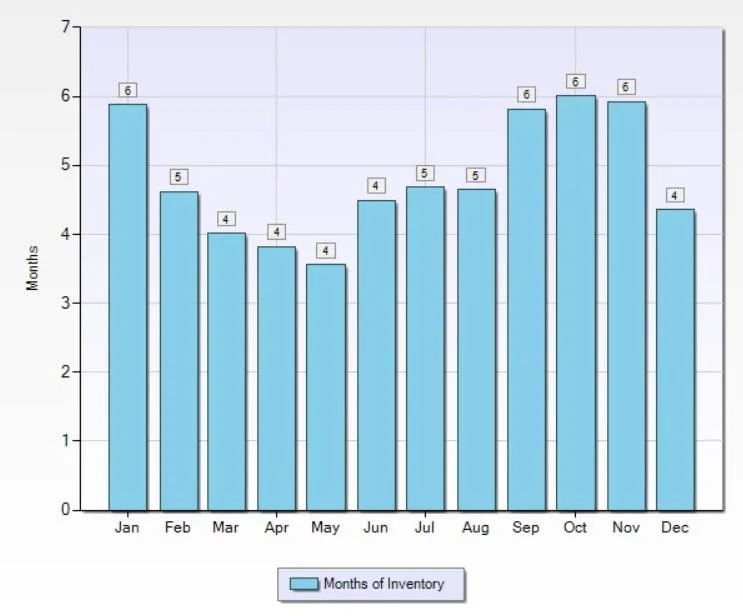
However, the average days on market increased to 65 days from 38, a jump of 27 days or 71.1%, pointing to slower sales timelines. Expired listings also rose significantly, with 97 properties failing to sell compared to 43 in December 2023, an increase of 54 listings or 125.6%.
Average Days to Sell
The "days to sell" statistic in real estate measures the average time it takes for a property to go from being listed to being sold. This metric reflects the market's pace; shorter days to sell indicate a fast-moving market, often favoring sellers, while longer days suggest a slower market, potentially benefiting buyers. It helps gauge demand and can influence pricing strategies.
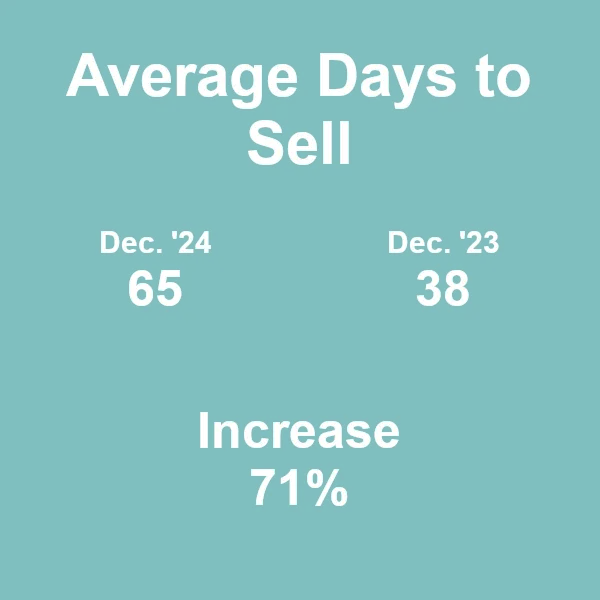
Graph With 12 Month Values
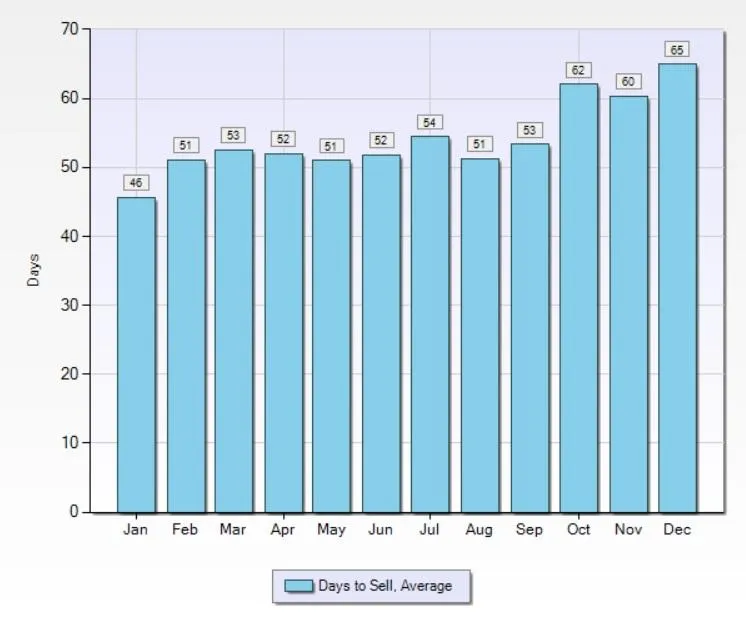
Expired Listings
Expired listings in real estate refer to properties that were listed for sale but did not sell within the contract period, causing the listing to expire. This statistic indicates properties that may have been overpriced, poorly marketed, or in low demand. A high number of expired listings can suggest a slower market or sellers' reluctance to adjust prices to meet market conditions.
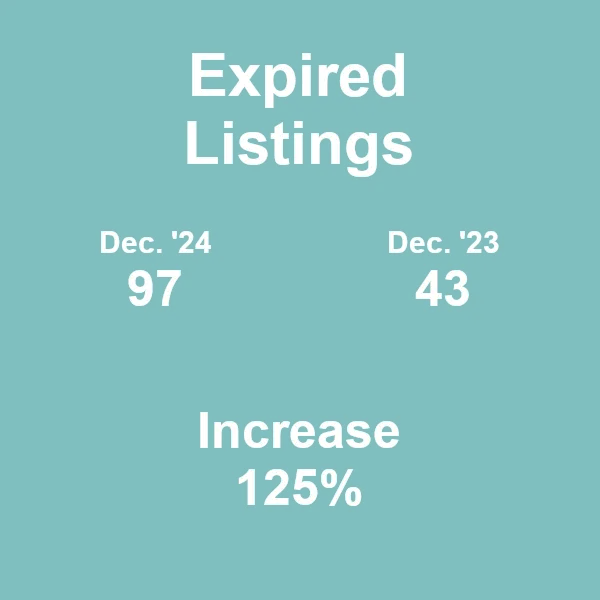
Graph With 12 Month Values
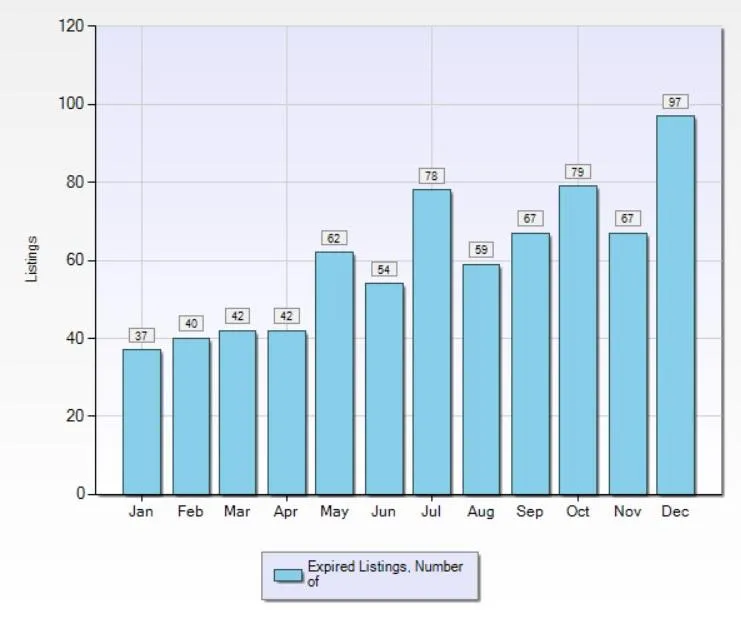
Summary
The increase in active listings and longer time on market suggests more competition among sellers, while the rise in expired listings highlights potential challenges in meeting buyer price expectations. On the positive side, the boost in sales volume and a slight price increase point to steady demand despite these headwinds.
The reduction in inventory from 5 months to 4 months signals improved absorption, but homes are taking longer to sell compared to last year. These factors suggest a market in transition, requiring sellers to be strategic in pricing and marketing while buyers navigate a landscape of expanded options.
Overall, West Pasco's real estate market shows steady demand, but sellers face increased competition and longer sales timelines.
